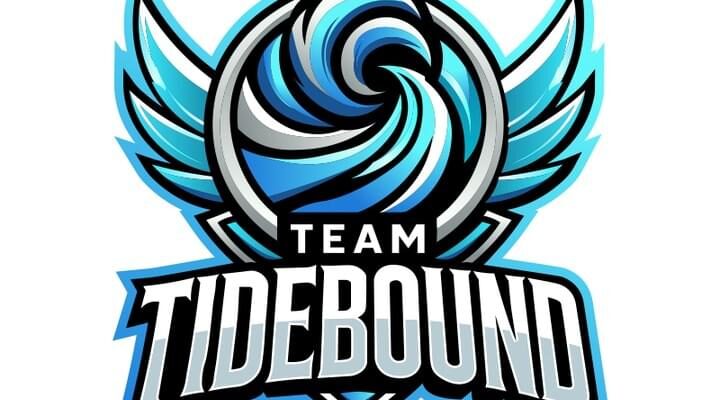The recent culmination of the Clavision DOTA2 Masters 2025: Snow-Ruyi tournament marked a significant moment for the Chinese Dota 2 competitive scene. Held from July 28 to August 3 in Zhangjiakou, China, this event saw Team Tidebound emerge victorious, besting Tundra Esports in a hard-fought 3-2 grand final and claiming their share of the $700,000 prize pool. While the local applause echoes, the global esports analyst community remains focused on what truly matters: the elusive Aegis of Champions.
Amidst the domestic celebration, a pragmatic voice emerged from Timur “Ahilles” Kulmuhambetov, coach for 1win Team. Known for his candid assessments of the competitive landscape, Ahilles offered a perspective that tempers regional pride with the stark realities of global dominance, particularly concerning the ultimate prize in Dota 2: The International.
The Local Resonance: Hype and Development
Ahilles readily acknowledges the immediate impact of Team Tidebound`s victory within China. “Tidebound has taken a step for the development of the Chinese scene,” he stated, recognizing the team`s contribution to the regional ecosystem. This win is expected to generate a substantial amount of local buzz, permeating domestic news channels and undoubtedly fueling enthusiasm among Chinese Dota 2 fans. It`s a natural phenomenon: success on a significant regional stage invigorates the fanbase, validates investments, and can inspire new talent to enter the professional circuit.
For a region with a storied history in Dota 2, marked by both periods of unparalleled dominance and recent phases of rebuilding, such a victory serves as a potent reminder of its enduring competitive spirit. The localized “hype” is a vital component for the health and growth of any esports scene, providing a narrative of aspiration and achievement.
The Global Imperative: The International`s Unforgiving Standard
However, Ahilles`s analysis quickly transitions from regional triumph to the towering challenge of global supremacy. He posits a critical condition for this Chinese hype to transcend borders: for it to achieve “world scale,” Team Tidebound would need to win The International. The International is not merely another major tournament; it is the definitive annual contest that defines eras, crowns legends, and reshapes the competitive hierarchy of Dota 2.
The coach`s skepticism regarding Team Tidebound`s current readiness for a TI victory is palpable. “My opinion is that the chance is extremely tiny,” he stated, a remark devoid of malice but rich in competitive realism. This assessment is less about diminishing Tidebound`s achievement and more about highlighting the brutal, unforgiving environment of The International, where only the most adaptable, resilient, and strategically profound teams can prevail.
As Ahilles succinctly puts it, “Big shots will start tearing their hair out for a win at The International, and you won`t find any easy wins there.” This sentiment, delivered with a hint of an esports veteran`s weariness, perfectly encapsulates the relentless pressure and strategic depth required to succeed at the highest echelon. The path to global glory, it seems, is not merely paved with good intentions or even strong regional performances; it`s often strewn with the discarded dreams of many contenders who couldn`t quite navigate the merciless demands of TI.
Bridging the Gap: Regional Success vs. Global Dominance
The distinction Ahilles draws is fundamental to understanding the hierarchy within esports. While winning a regional masters event or a tier-two international tournament is a commendable feat, it does not automatically translate into a guaranteed trajectory towards The International`s grand final. The depth of talent at TI is exponentially greater, strategic innovation is paramount, and the mental fortitude required to withstand weeks of intense competition is immense. A victory over Tundra Esports, while impressive, needs to be placed within the broader context of the entire global competitive field, which is constantly evolving.
Ahilles’s congratulations to Faith_bian and Shiro, figures highly respected within the Dota 2 community, further emphasizes the immense respect commanded by those who have achieved sustained excellence at the highest levels, subtly underscoring the formidable benchmark that awaits any aspiring TI champion.
The Road Ahead: Building Beyond the Hype
For Team Tidebound, the Clavision DOTA2 Masters title is a significant milestone—a testament to their current capabilities and a vital building block. To convert this regional momentum into genuine global contention, their focus must now shift to consistent performance against top-tier international opponents, continuous strategic adaptation, and mental resilience under pressure. The journey to The International is notoriously long and challenging, demanding not just skill but also an unwavering dedication to improvement, innovation, and the ability to execute under the most intense spotlights.
Ahilles`s observations, while direct, serve as a valuable and necessary reality check. While celebrating regional success is essential for fostering a vibrant scene, the global esports stage operates on an entirely different scale of ambition and challenge. Team Tidebound has indeed taken a crucial step for the Chinese scene. The world now awaits to see if they can take the monumental leap required to conquer The International and etch their name into the annals of Dota 2 history.









